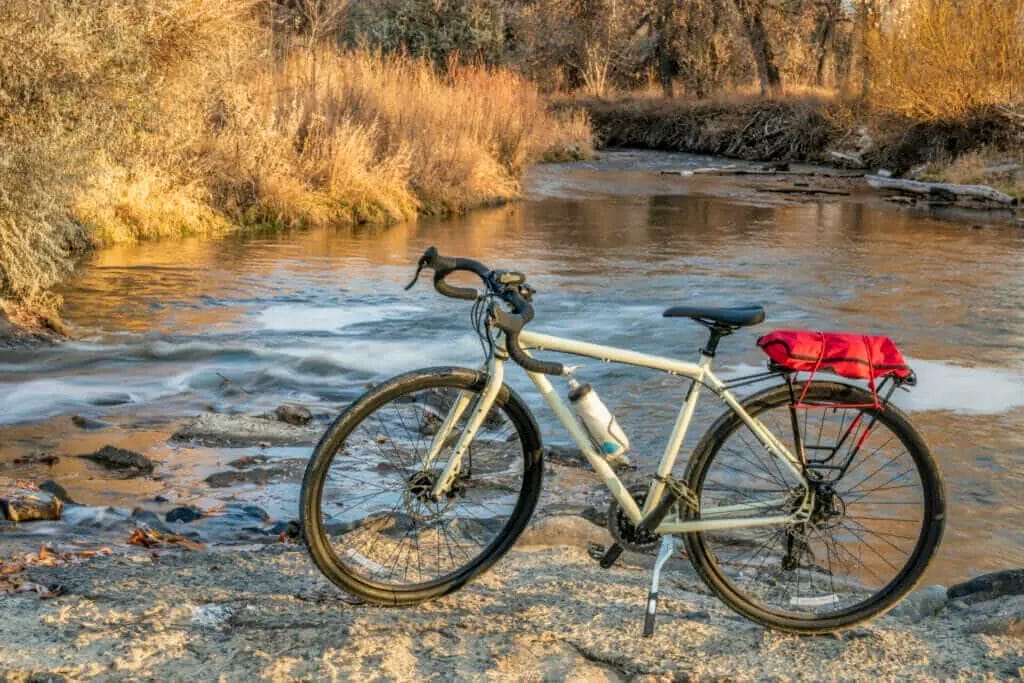Last Updated on December 31, 2023 by Vinson Lozano

You’re pushing the pedals for hours on end, challenging your body to outperform itself during ultra-endurance cycling. It’s not just about the physical training but also about fueling your body the right way. Sure, your muscles are important, but without the proper nutrition, they are like an engine running without fuel. Understanding what to eat is paramount in such grueling physical endeavors.
Benefits of proper nutrition for ultra endurance cycling
Proper nutrition becomes your secret weapon. It’s not just about providing energy to keep you going but also about quick recovery, efficient muscle function, and maintaining your overall health during the intense stresses of endurance cycling. A blend of complex carbohydrates for slow and steady release of energy, high-quality proteins for muscle repair, and essential fats for long-term energy is crucial. Hydration, with the right balance of electrolytes, will keep your body’s systems functioning optimally, while micronutrients from fruits and vegetables will keep your immune system strong.
Factors to consider for fueling during ultra endurance cycling
As you embark on your ultra-endurance journey, consider the duration and intensity of your cycling. Your body requires a mix of fast-absorbing carbohydrates for immediate energy and complex ones for sustained fueling. Mid-ride nutrition should be portable, palatable, and easily digestible. Calories are a consideration, but so is the type of those calories—ensure variety and density to avoid gastrointestinal distress. Lastly, listen to your body for cues on hunger and thirst and know that your fueling strategy may change with experience, weather conditions, and intensity. Remember, what works for one cyclist might not work for you—personalizing your nutrition plan is key.
Pre-Ride Nutrition
Before embarking on an ultra endurance cycling event, the food you consume is as vital as the training itself. It’s imperative to prime your body with the right kind of fuel to endure the demanding journey ahead.
Importance of carbohydrate loading before the ride
The concept of carbohydrate loading is a renowned strategy used by endurance athletes. This practice involves increasing the amount of carbohydrates in your diet several days leading up to an event. By doing this, you maximize the storage of glycogen in your muscles and liver, which serves as a readily available energy source during prolonged physical activity. You should start incorporating more carbohydrates into your meals approximately three to four days prior to your event, aiming to make carbohydrates about 70-80% of your food intake.
Optimal pre-ride meal options
The pre-ride meal, typically eaten three to four hours before the event, should be high in carbohydrates, moderate in protein, and low in fat and fiber to facilitate easy digestion and minimize gastrointestinal discomfort. Consider options like a large bowl of oatmeal with bananas and honey, a couple of bagels with a thin layer of peanut butter, or a generous serving of pasta with a light sauce. Remember to drink plenty of water for hydration, but avoid excessive amounts of caffeine or sugary drinks that could lead to spikes and crashes in energy levels. Choose foods that you have eaten before long rides to ensure they agree with your digestive system. Your stomach is not the place for surprises on race day.
During-Ride Nutrition
Now that you’ve fueled up pre-ride, maintaining your energy during an ultra endurance cycling event is just as crucial to keep you pedaling through every mile. Your body requires a constant supply of nutrients and hydration to perform at its best, keeping fatigue at bay.
The role of carbohydrates and hydration during the ride
During the ride, your focus should be on simple carbohydrates that are easy to digest and quickly convert into energy. Aim to consume 30-60 grams of carbohydrates per hour. This is where sports drinks can be beneficial, as they offer a dual-purpose: keeping you hydrated and providing you with a steady stream of carbs. Moreover, hydration is key – you should drink at least 500-750 ml of water per hour, but of course, this depends on the weather conditions and your sweat rate. Listen to your body’s cues and drink before you’re thirsty to stave off dehydration.
Choosing the right energy gels and snacks for sustained energy
When selecting energy gels and snacks, opt for products that suit your stomach and are high in carbs but low in fiber to ensure that they’re easy to digest. Energy bars, bananas, and jelly beans are popular choices that can provide you with sustained energy. Every athlete is different, so it is essential to experiment with different food items and snacks during your training rides to find out what works best for you. Remember, never try anything new on race day. Trust in the nutrition strategy you’ve honed during training to take you across the finish line.
Hydration Strategies
The Importance of Staying Hydrated During a Long Cycling Session
As an ultra-endurance athlete, staying hydrated is paramount for your performance and safety during long cycling sessions. Dehydration can lead to a drop in energy levels, reduced coordination, and even heat stroke – something you cannot afford during an event or a rigorous training session. It’s imperative to match your fluid intake with the loss from sweating. The goal is to maintain your body weight, as sudden drops can indicate significant fluid loss. So always keep an eye on your hydration status by considering the color of your urine – aim for a pale yellow color as a marker of proper hydration.
Electrolytes and Sports Drinks for Optimal Hydration
Understanding the importance of electrolytes is crucial in ultra endurance sports. Sodium, potassium, and magnesium play vital roles in maintaining fluid balance and nerve function. During long rides, you not only lose water but also these crucial electrolytes through sweat. Replenishing them is essential, and that’s where electrolyte-infused sports drinks step in. Choose a sports drink that provides a balanced mix of electrolytes, carbohydrates, and water to enhance absorption and fuel your muscles. This will ensure you maintain your electrolyte levels, preventing cramps and optimizing muscle function. Remember, while water is essential, on its own it’s not enough for long-distance events. Complement your water intake with an appropriate sports drink and aim to sip frequently rather than consuming large amounts infrequently. It will help you maintain optimal hydration and electrolyte balance throughout your ride.
Recovery Nutrition
The Significance of Post-Ride Recovery Nutrition
After pushing the limits in ultra-endurance cycling, your body demands adequate nourishment to repair and replenish itself. Neglecting post-ride recovery nutrition can lead to prolonged muscle soreness and inadequate preparation for your next challenge. Recovery is the time when your body adapts to the stress of exercise and the real training effect takes place. Thus, providing it with the right nutrients immediately after your ride is imperative for optimal gains in strength and endurance.
Replenishing Glycogen Stores and Repairing Muscle Tissue
One of your top priorities should be to restore glycogen levels. Glycogen is your body’s most accessible form of energy, heavily depleted after long-distance cycling. Consuming carbohydrates within 30 minutes post-exercise kickstarts the replenishment process. Aim for simple carbs that are quick to digest, such as fruit or a carbohydrate-rich sports drink.
In terms of repairing muscle tissue, protein is your ally. The strain of cycling causes micro-tears in muscle fibers, and protein provides the amino acids necessary for repair. Combining carbs with protein enhances the repair process and glycogen replenishment. A good rule is to aim for a 3:1 or 4:1 ratio of carbs to protein. Snacks or shakes that combine these macronutrients can be highly effective.
For continued recovery, include a well-balanced meal within two hours after your ride. This meal should be rich in complex carbohydrates, lean proteins, and contain ample vitamins and minerals to support immune function and overall health. Keep in mind that, as an ultra-endurance athlete, your recovery nutrition is just as crucial as your training regime.
Meal Planning for Endurance Athletes
Designing a Well-Balanced Meal Plan Specific to Ultra Endurance Cycling
As an ultra-endurance cyclist, your meal plan needs to fuel long duration activities, aid in recovery, and maintain overall health. Focus on a well-balanced diet that includes a variety of foods to ensure you get a broad spectrum of vitamins, minerals, and antioxidants. Plan your meals around whole grains, lean proteins, healthy fats, fruits, and vegetables. Diversify your protein sources by including legumes, nuts, dairy, and lean meats to sustain muscle repair and growth. Don’t overlook the power of omega-3 fatty acids found in fish and flaxseeds, as these can help combat inflammation brought on by rigorous training.
Macronutrient Ratios and Timing of Meals
Your macronutrient intake should be carefully calibrated. For ultra-endurance exercises, aim for a higher carbohydrate intake—around 60-65% of your total energy, as carbs are your main fuel source. Protein is critical too, especially after a ride, making up about 15-20% of your caloric intake. The remaining 15-25% should come from healthy fats that support energy and overall health.
Meal timing is crucial. Before a long ride, consume a high-carb meal to ensure sufficient glycogen stores. During the ride, snack on energy bars, gels, or bananas. Afterward, as stated earlier, consume carbs and proteins ideally within the 30-minute post-exercise window to expedite recovery. Finally, attend to hydration—replace all the fluids lost during cycling, and consider electrolyte-infused drinks if you sweat extensively.
Remember, meticulous planning of your diet is as pivotal to your ultra-endurance cycling success as the training itself. Nutritional excellence will help you push past limits and achieve your most ambitious cycling goals.
Supplements for Endurance Cycling
Exploring Supplements That Can Enhance Performance and Recovery
You are dedicated to pushing your limits and conquering long-distance rides, and you’re knowledgeable about the importance of a balanced diet. However, supplements can be an adjunct to your nutrition plan, potentially enhancing your performance and recovery. Consider natural ergogenic aids like beetroot juice, which can increase nitric oxide levels and improve oxygen flow to your muscles. Caffeine is another popular choice; it can heighten alertness and delay fatigue during your rides.
Beyond these, branched-chain amino acids (BCAAs) may help reduce muscle soreness when taken before or after your ultra-endurance rides. Electrolyte tablets are essential too, especially when you’re sweating for hours on end and need to maintain fluid balance and nerve function. Choose supplements that are third-party tested for quality assurance as you build your ultra endurance cycling regime.
The Role of Protein Powders and Omega-3 Fatty Acids
You might wonder about the role of protein powders and omega-3 fatty acids in your ultra-endurance cycling diet. Protein powders, especially whey or plant-based options, provide a quick and convenient source of high-quality protein. Intaking protein shortly after a long ride aids in muscle repair and recovery. Meanwhile, omega-3 supplements, available as fish oil or algal oil capsules, can support your cardiovascular health and reduce inflammation, which is crucial when you’re putting in those high-mileage weeks.
Remember to consult with a nutritionist or a healthcare provider before starting any supplement regime, ensuring it complements your existing meal plan and cycling goals. By strategically incorporating the right supplements, you can support your body’s needs as you tackle the extreme demands of ultra-endurance cycling.
Sample Meal and Snack Options
Healthy and fueling meal ideas for ultra endurance cycling
You know that your performance during ultra endurance cycling is heavily influenced by the food you put into your body. Fueling with the right meals is vital for sustained energy, recovery, and overall health. Start your day with a hearty breakfast like oatmeal mixed with nuts, seeds, and fruit, providing complex carbohydrates for energy and protein for muscle repair. For lunch, you might opt for a lean protein source like chicken or fish, accompanied by a large serving of carbohydrates, such as quinoa or sweet potatoes, and steamed vegetables for vitamins and minerals.
Leading up to your ride, consuming a meal that is high in carbs and moderate in protein can give you a lasting source of fuel. A plate of whole-grain pasta with a light sauce and grilled vegetables gets the job done. Post-ride, your focus should shift to recovery; consider a protein smoothie with banana, berries, and a scoop of your favorite protein powder to start muscle repair and replenish glycogen stores.
Snacks to keep energy levels up during the ride
You should be strategic with snack choices to maintain high energy levels during long cycling sessions. Easily digestible carbs are your best friends here. Pack snacks like energy bars, bananas, or even a peanut butter and jelly sandwich for those quick pit stops. Don’t overlook the power of simple dates or raisins; they’re loaded with quick-release sugars, perfect for that instant energy boost.
It’s also essential to have some form of protein in your snacks to aid in muscle preservation—a bag of trail mix or a handful of almonds can serve well for this purpose. For hydration, apart from water, consider diluting fruit juice with water for an additional carb source or take along an electrolyte drink to replenish salts lost through sweat. Remember that well-timed and well-planned nutrition is what will keep your wheels turning across those grueling distances.
Conclusion
The importance of personalized nutrition for ultra endurance cycling
It’s critical to tailor your nutrition strategy to your individual needs when preparing for ultra endurance cycling. Your body’s response to different types of food and the intensity of your cycling will inform the kinds of nutrients you require. We all metabolize foods differently, so your ideal fueling plan may differ from another cyclist’s. Listen to your body’s signals during training and adjust your food choices accordingly. Hydration and electrolyte balance are just as important as what you eat—keep a close watch on your intake before and during your rides to perform at your peak.
Tips for experimenting with different foods and strategies
You must take the time to experiment with various foods and hydration strategies well ahead of your event. Test meals and snacks during training rides to determine what sustains your energy the longest without causing digestive discomfort. Keep a food diary to note how different combinations affect your performance and recovery. Don’t shy away from trying new things – even small changes in your diet could lead to improvements. Always prioritize foods that are rich in nutrients and easy to digest. But come race day, stick with what has worked for you in training. Trust in your personalized plan and let your nutrition be your secret weapon as you tackle the rigorous demands of ultra endurance cycling.


